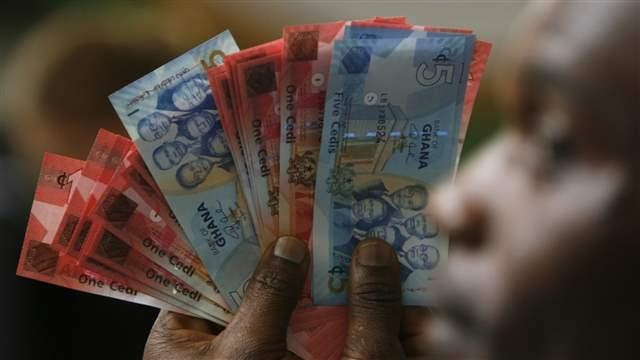Food, debt relief and spending to ease Ukraine-Russia fallout
Zambia held its long-delayed meeting with China and other international lenders in the wake of its debt default in 2020 as it seeks to unfreeze $1.4bn of funding from the IMF.
Meantime, as the global food crisis rages on, the US is working with partners to rescue around 3 million tonnes of grain stuck in Ukraine to provide some relief to African countries that are facing severe food shortages.
In East Africa, countries including Kenya and Tanzania are ramping up government spending in a bid to rekindle economic growth that has stalled amid Russia’s war in Ukraine.
Naira steady in face of rising inflation
The Naira held firm against the greenback this week, trading at 606 as buying pressure wanes. Nigeria’s annual inflation rate surged to an 11-month high of 17.71% in May from 16.82% in April, driven by rising food and energy prices.
The government has complained that demand for imported frozen fish is straining the nation’s FX reserves, with the country importing 2.4 million tonnes of frozen fish a year to make up for the shortfall in domestic supply.
As political campaigning continues, we expect the Naira to appreciate in coming weeks as political dollars gradually get converted back to local currency.
Cedi set for 8 per dollar as inflation soars
The Cedi depreciated marginally against the dollar this week, trading at 7.95 from 7.92 at last week’s close.
Ghana this week raised $1bn in loans from a syndicate of global banks and multilateral lenders to help finance its budget and restock its FX reserves after being shut out of the international bond market this year as its borrowing costs surged.
The central bank also this week auctioned $75m of FX to stem the Cedi’s losses. With May inflation jumping to an 18-year high of 27%, we expect the currency to drop below the 8 level in the near term.
Risk pullback to keep Rand at 16 handle
The Rand depreciated against the dollar this week, trading at 16.05 from 15.85 at last week’s close as US inflation—running at a 40-year high of 8.6%—prompted the Federal Reserve to increase interest rates by 75 basis points to a target range of 1.5% to 1.75%.
That was the Fed’s largest rate hike since 1994. Renewed Covid restrictions in China have further compounded the global retreat from risk assets.
Against that backdrop, we expect anything seen as ‘elevated risk’ to remain under pressure, with the Rand likely to continue trading with a 16 handle in the coming week.
Pound under pressure as Egyptian inflation climbs
The Pound weakened against the dollar again this week, slipping to 18.76 from 18.71 at last week’s close as inflation climbed for a sixth straight month to 13.5% in May from 13.1% in April.
That is the highest rate since May 2019 and the third month in a row that inflation has been above the central bank’s 5 to 9% target range.
Soaring food prices amid Russia’s ongoing war in Ukraine and a squeeze on grain supplies is likely to maintain those inflationary pressures. With the rising inflation levels, the pound will remain under pressure in the near term.
Dollar demand for fuel pushing Kenyan Shilling towards record low
The Shilling weakened against the dollar this week, trading at 117.20/117.40 from 116.90/117.00 at last week’s close, edging back towards its record low 117.5 recorded at the start of this month.
The ongoing weakness has been driven by increased dollar demand from oil importing companies, reduced FX inflows and a stronger greenback. The dollar shortage has resulted in higher prices of imported commodities like fuel and cooking oil, with fuel prices hitting a record high this week.
We expect the stronger dollar and Kenya’s upcoming elections to continue weighing on the Shilling in the week ahead.
Ugandan Shilling gains unlikely to hold
The Shilling strengthened against the dollar this week, trading at 3754 from 3758 at last week’s close as business sentiment remained positive on predictions of growth in new orders.
Uganda’s Finance Minister Matia Kasaija presented the country’s spending plans this week, outlining a goal to narrow the budget deficit to 5.4% of GDP over the coming financial year.
However, given rising fuel and raw material costs, we expect the Shilling to depreciate in the coming weeks.
Tanzania plans spending boost and fuel-price stabilisation fund
The Shilling appreciated marginally against the dollar this week, trading at 2330 from 2331 at last week’s close.
Tanzania’s Finance Minister Mwigulu Nchemba presented the government’s budget to parliament this week, proposing to increase spending by 9% and introduce a fuel price-stabilisation fund to limit the economic impact from spiking oil prices.
Nchemba also cut the country’s economic growth forecast to 4.7% from an earlier prediction of 5.5%. We expect the Shilling to come under pressure in the week ahead following the US Fed’s decision to lift interest rates by 75 basis points.
Note to journalists: please feel free to quote from this briefing for news reports and let us know any requests for further comment or interviews via the contact details at the end, or by reply to this email. AZA is Africa’s largest non-bank currency broker by trading volume at over $1 billion annually. See https://www.azafinance.com
Issued by AZA. This Newsletter is produced as a service to our clients. It is prepared by our dealing professionals and is based on their understanding and interpretation of market events. AZA cannot be held responsible for any losses of whatever nature sustained as a result of action taken based on comments contained in this publication.
For more information, high-resolution charts or interviews, please contact:
Gavin Serkin
[email protected]
+44 20 3478 9710

















